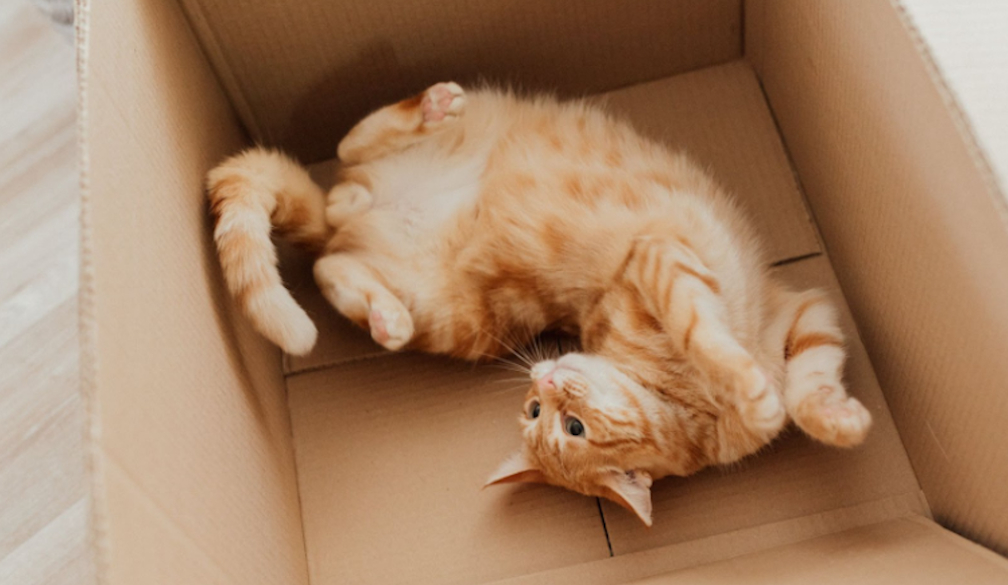Tips for relocating homes with pets

It's no secret that pets are an important part of the family for many people. In fact, according to research from Compare the Market, as many as 50 percent of people say their pet is (or would be) as important as their children. Relocating homes can be a daunting task, and when you have furry companions in tow, the challenge multiplies. Moving with pets requires careful planning and consideration to ensure a smooth transition for both you and your four-legged friends. Whether you're moving across town or to a new city, here are some tips to make the process of relocating homes with pets a breeze.
Visit the vet before moving
Our first tip is to schedule a visit to the vet well before your moving date. This can help you ensure that your pet is up-to-date on vaccinations. While there, request a copy of their medical records. Discuss any concerns you may have about the move, and ask for advice on keeping your pet calm during the transition.
Update ID tags and microchips
Before moving, update your pet's ID tags with your new contact information. If your pet is microchipped, ensure that the information linked to the chip is current. In the event that your pet gets lost during the move, having updated identification can help them make their way back to you.
Introduce your pet to a travel carrier
If your pet isn't used to spending time in a travel carrier, it's important to introduce them to one before moving day. This can help reduce stress and anxiety during the move. Start by leaving the carrier out in your home with treats and familiar toys inside. Gradually increase the time your pet spends in it until they are comfortable being confined for longer periods.
Create a pet-friendly moving plan
Plan your move with your pet's comfort in mind. Consider their routine and try to maintain a sense of normalcy as much as possible. If the move is long-distance, plan for frequent breaks and overnight stays at pet-friendly accommodations. If you're only moving a short way, where possible, have a family member or friend watch your pet on moving day to keep them out of the chaos.
Pack an essentials bag for your pet
It's not just humans that can benefit from having an essentials bag! An essentials bag for your pet can make the transition to a new home smoother. Pack food, water, bowls, medication, toys, and any other items your pet may need during the move and the first few days in the new home. Having these items easily accessible will help keep your pet comfortable and happy throughout the journey.
Secure a safe space in your new home
According to a US survey by Ally Home, 19 percent of Baby Boomers and 24 percent of Gen Xers give their pets a dedicated space in their homes. Upon arrival at your new home, consider setting up a safe and comfortable space for your pet that's all theirs. This could be a designated room with their familiar belongings, allowing them to acclimate to the new environment gradually, or a specific section of a room. Ensure windows and doors are secure to prevent accidental escapes.
Establish a routine quickly
Pets thrive on routine, so try to establish their routine in the new home as quickly as possible. This includes feeding times, walks, and playtime. Familiarity will help them feel more at ease in the new surroundings. Try to maintain their usual schedule, but also be prepared for some adjustments as they get used to the new home.
Explore the neighbourhood together
Once you've settled in, take some time to explore the neighbourhood with your pet. Familiarise them with nearby parks, walking routes, and pet-friendly spaces. Doing so will help them adjust to the new surroundings and build positive associations. This is also a great opportunity for you to get acquainted with your new community and meet other pet owners.
Monitor behaviour and provide comfort
Keep a close eye on your pet's behaviour in the days and weeks following the move. If they show signs of stress or anxiety, provide comfort and reassurance. Spend quality time with them, offering extra attention and affection as needed. Be patient and understanding as they adjust to the new home.
Relocating homes with pets requires thoughtful planning and patience. By taking proactive steps to ensure your pet's well-being before, during, and after the move, you can make the transition smoother for both you and your beloved furry companions. With a little extra care and attention, your pets will soon be happily settled into their new home.





